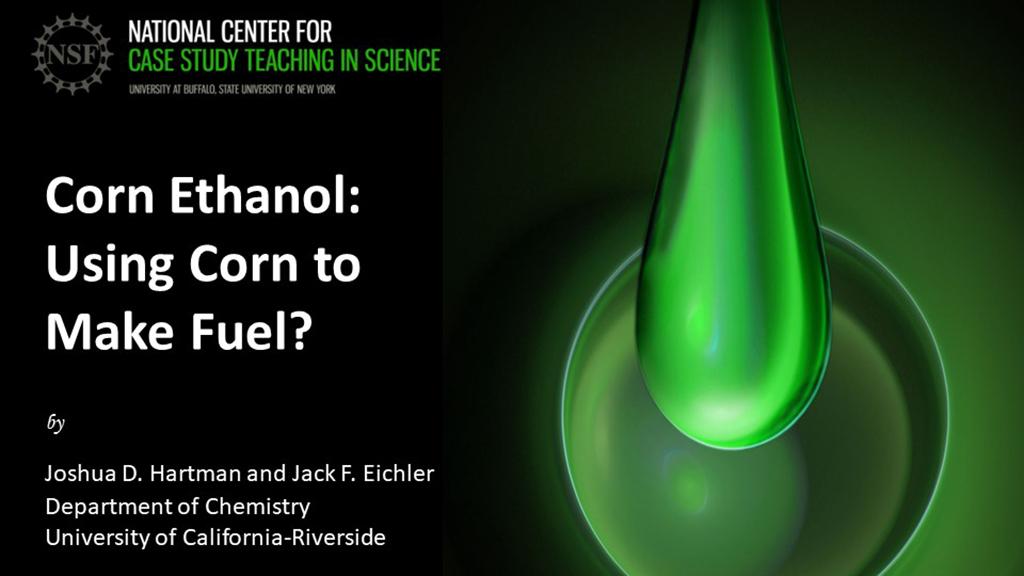Abstract
This problem-based case study guides students through a systematic exploration of the scientific issues surrounding the production and development of bio-fuels. A PowerPoint presentation introduces a New York Times article outlining the impact current Federal renewable-fuel standards have on the allocation of our annual corn crop. The article argues that our current policy, which diverts approximately 40 percent of the annual corn crop towards ethanol production, is based on unfounded claims that such a practice will decrease our reliance on fossil fuels, decrease the cost of gasoline, decrease carbon dioxide emissions and increase the overall supply of gasoline. Students are next given two primary literature articles that address relevant scientific and technical considerations. The case study is designed to illustrate the direct application of chemical kinetics and catalysis to a timely issue with important political and economic ramifications. This case study is designed for a second semester/second quarter general chemistry course, and is generally presented after the units on chemical kinetics and rate laws have been covered.



